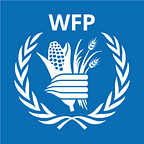How might we stimulate demand for life-saving vaccinations in Tanzania and beyond?
For the first time this November, the WFP Tanzania Innovation Hub, the Global Innovation Accelerator and the Bill and Melinda Gates Foundation (BMGF) are partnering to bring 10 global teams from the BMGF’s Grand Challenge Exploration Program to Tanzania for a high-intensity Innovation Bootcamp at Seedspace, Dar-es-Salaam, the largest entrepreneurship hub in Tanzania.
The five-day bootcamp — November 4–8 — aims to boost the capacity of finalists from The Bill & Melinda Gates Foundation’s Grand Challenge Explorations program, specifically the “Increasing Demand for Vaccination Services” challenge. Vaccines and resulting immunization have a positive impact on nearly all the 17 Sustainable Development Goals (SDGs), including Goal 2 (Zero Hunger).
At the bootcamp, teams will deep dive into field-level challenges, ideate solutions and refine project plans with the support of mentors. Tanzanian innovation facilitators hailing from Anza Accelerator, Buni Hub, Impact Hub Dar-es-Salaam, Id8 Space, hub255 and others will guide teams through human-centred design and lean start-up methodologies to strengthen their solutions.
The week culminates with Pitch Night on Friday 8 November, where each team will have the opportunity to present their solution to an audience of potential investors and leading players in the Tanzania innovation and development scene.
The teams
The teams were selected based on the level of innovation, team strength and passion, business model, and — most importantly — the potential to have scalable, positive impact on the lives of many.
1. LEOPOD — Nigeria
Only 31 percent of children are fully vaccinated in Nigeria, with marginal improvements in national immunization coverage over the past two decades. LEOPOD, a project ran by the Center for Integrated Health Program, is designing a series of impact sessions, facilitated by immunization mentors, to increase the uptake of vaccination in other caregivers.
2. DAMAX — Tanzania
By combining traditional behavioural theory & innovative marketing methods, DAMAX places communities at the forefront to be their own agents of change by co-creating and co-managing delivery of interventions to work towards a “100 percent immunized” goal.
3. Levering Food Distribution Networks to Increase Knowledge — Kenya and Central African Republic
Caregivers may not take advantage of available vaccination services due to lack of access to information about their availability and importance. A team from the Center for Disease Dynamics, Economics and Policy will design a solution leveraging food distribution channels to spread information via food packaging labels, produce and seafood wrappings, food/water carrying tools, and transaction receipts on to caregivers on the importance of immunization, and when, where and how to access local vaccination services.
4. Broadreach — East African region
Challenges in accessing immunization services in the East Africa sub-region impede achievement of vaccination targets, especially for highly mobile populations across national borders. Broadreach harnesses mobile technology, machine learning and Near Field Communication (NFC) technology to improve access to immunization services across national borders.
5. Improving Vaccination Awareness and Coverage in Somalia (IVACS) — Somalia
Vaccine-preventable diseases are prevalent in southern Somalia, and only 30–40 percent of children are immunized against the six major childhood diseases. A team from the University College London’s Institute for Global Health will apply a participatory learning and action cycle approach to leverage the power of Abaay-Abaay groups, traditional female social groups that are found throughout Somalia, to identify challenges to achieving vaccination uptake, look for solutions, and implement actions.
6. Community Theatre for Immunization — Nigeria
Caregivers indicate lack of awareness as a key reason for their kids not being fully immunized. By using community theatre to showcase real stories, with a human-centred design approach, this team from Corona Management Systems seeks to empower caregivers to seek and fully utilize immunization services.
7. SheVaccs — Nigeria
Working mothers’ demanding schedules limits their ability to vaccinate their children. A team from the University of Ibadan’s Institute for Child Health will design a tripartite innovative immunization strategy targeting working mothers in the formal and informal sectors.
8. Routine Immunization Buddy System (RIBS) — Nigeria
There is a lack of mechanisms that allow Northern Nigerian caregivers to demand immunization and other primary health care (PHC) services within their localities. By focusing on vocational skills development in Nigerian communities, the RIBS team will build caregivers’ confidence and empower them to provide a better quality of life for their children.
9. MAMA CHANJO — Tanzania
Pastoralists in Tanzania face a number of health challenges. The Mama Chanjo team empowers champions to be behavior change makers for new pregnant mothers to improve immunization coverage.
10. Crowdsourcing to Rebuild Chinese Caregiver Trust in Vaccines — China
The Crowdsourcing for Health team seeks to use an innovative crowd-sourcing method to rebuild trust in mandatory Chinese childhood vaccines. The team will organize a nationwide open contest to solicit community input on intervention messages improving caregiver confidence in childhood vaccines.
WFP Innovation
For several years, WFP has been running a successful Innovation Accelerator to disrupt global hunger. In 2017, WFP Tanzania became the first country, amongst 80 WFP country offices worldwide, to develop a dedicated, local Field Innovation Hub to complement WFP’s global initiatives. WFP and its partners foster, test, refine and scale up innovations that can contribute to the achievement of the Sustainable Development Goals (SDGs) by 2030.
For the latest from WFP Tanzania Innovation Hub, be sure to sign up for the newsletter and be sure to follow @WFP_Tanzania and @WFPInnovation on Twitter.
